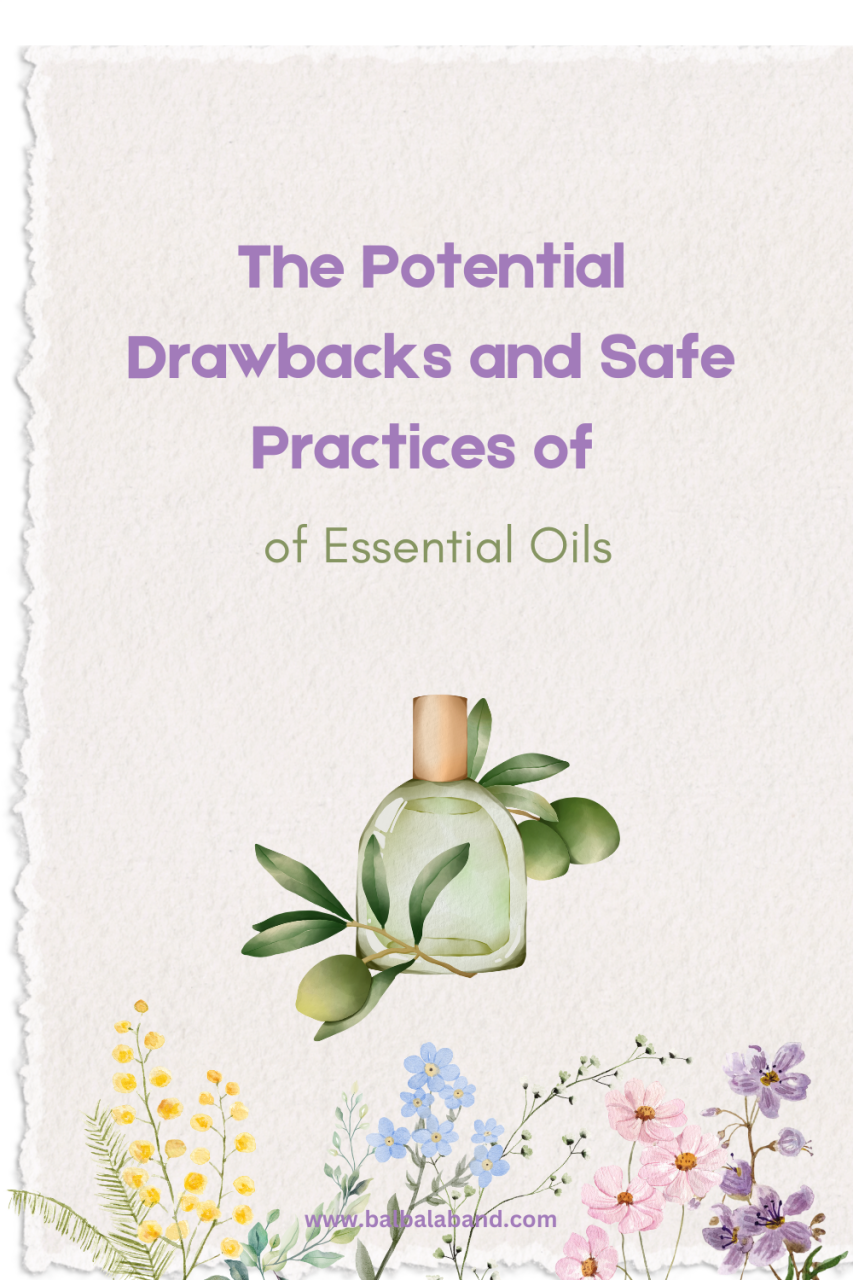The Potential Drawbacks and Safe Practices of Essential Oils

The Negative Effects of Essential Oils: What You Need to Know
Essential oils, while beneficial, can have negative effects if used improperly. Overuse or incorrect application can lead to skin irritation, allergic reactions, or even respiratory problems. For example, oils like tea tree and eucalyptus are potent and may cause toxicity if ingested or applied undiluted. Additionally, diffusing essential oils excessively in poorly ventilated spaces can worsen indoor air quality and lead to headaches or nausea for sensitive individuals. Understanding these risks is key to using essential oils safely.
Who Should Avoid Aromatherapy and Why?
Aromatherapy is not suitable for everyone. Pregnant individuals, infants, and people with asthma or allergies should approach aromatherapy with caution or avoid it altogether. Some essential oils, such as rosemary, clary sage, and cinnamon, can trigger adverse reactions in sensitive populations. For these groups, consulting a healthcare provider before using aromatherapy ensures safety and avoids unintended health issues.
Disadvantages of Aromatherapy and Essential Oils
Aromatherapy has its drawbacks, including the lack of regulation in the essential oil industry. This makes it challenging to verify the purity and quality of products. Additionally, over-reliance on aromatherapy can delay seeking medical treatment for serious conditions. Environmental concerns also arise, as the production of some essential oils contributes to overharvesting and ecological harm. These disadvantages highlight the importance of informed and mindful use.
Are 100% Essential Oils Safe?
While 100% pure essential oils are marketed as high-quality, they are not inherently safe without proper dilution and use. Pure oils are highly concentrated and can cause adverse effects such as burns, irritation, or toxicity if applied directly to the skin or used excessively. Always dilute essential oils with a carrier oil and follow recommended guidelines to ensure safety.
Are Essential Oils Bad for Air Quality?
Although essential oils can create a pleasant aroma, they may release volatile organic compounds (VOCs) that affect air quality. In poorly ventilated areas, VOCs from essential oils can contribute to indoor air pollution, exacerbating respiratory conditions for sensitive individuals. To minimize this risk, use essential oils sparingly and ensure proper ventilation.
Which Essential Oils Should Be Avoided?
Certain essential oils are best avoided due to their high potency or potential health risks. For example, eucalyptus, peppermint, and wintergreen are not recommended for use around children or individuals with respiratory conditions. Additionally, citrus oils like lemon and orange can cause photosensitivity, increasing the risk of skin irritation when exposed to sunlight. Researching and selecting appropriate oils is essential for safe use.
How to Tell if an Essential Oil Has Gone Bad
Essential oils can degrade over time, losing their potency or becoming harmful. Signs that an essential oil is no longer good include changes in smell, color, or consistency. A rancid or off-putting odor is a clear indicator of oxidation or contamination. To extend the shelf life of essential oils, store them in dark, airtight containers away from heat and light.
What to Avoid When Buying Essential Oils
When purchasing essential oils, avoid products with vague labeling or synthetic additives. Reputable oils will include the botanical name, extraction method, and country of origin on the label. Unusually cheap oils are often diluted or adulterated, so prioritize quality over price. Trusted brands with transparent sourcing and rigorous testing are the best choice.
The Disadvantages of Oil Diffusers
Oil diffusers, while effective for aromatherapy, come with disadvantages. Overuse can lead to oversaturation of scents, causing headaches or nausea. Diffusers also require regular cleaning to prevent mold and bacteria buildup, which can pose health risks. Additionally, not all diffusers are energy-efficient or safe for use around children and pets, making it essential to choose the right device for your household.
Conclusion
Essential oils and aromatherapy can offer significant benefits when used mindfully, but they are not without risks. Understanding the potential drawbacks—from safety concerns to environmental impact—helps ensure responsible use. By staying informed, choosing high-quality products, and following best practices, you can enjoy the therapeutic advantages of essential oils while minimizing their disadvantages. Whether exploring blending techniques or opting for eco-friendly options, a thoughtful approach to aromatherapy ensures a safe and enjoyable experience for all.
